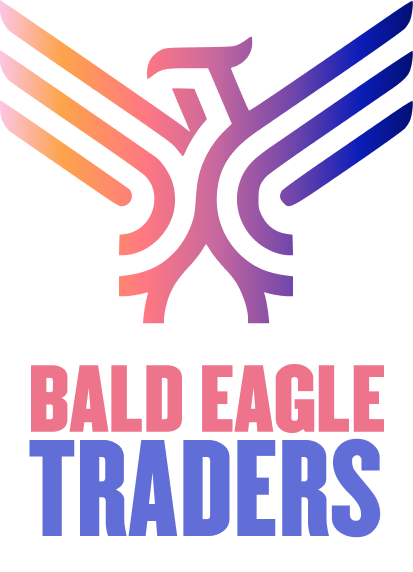If you’ve been around the cryptocurrency world for a while, then you may have heard of FTX, which is a cryptocurrency exchange where investors can buy and sell popular digital coins. FTX was founded and is based in the Bahamas but also offers cryptocurrency investment opportunities for individuals in the United States through a different platform.
If you’re on the lookout for a cryptocurrency exchange to use, this review is for you. We’re discussing what FTX is, how the exchange works, the products available, and more.
What is FTX?
FTX is a cryptocurrency exchange founded in 2019 in the Bahamas. It currently has its headquarters in the Bahamas and is incorporated in Antigua and Barbuda. FTX Exchange is backed by Alameda Research, a top cryptocurrency trading firm.
FTX was founded by Sam Bankman-Fried and Gary Wang. The two both graduated from MIT, Bankman-Fried with a degree in physics, and Wang with a degree in mathematics and computer science. Both have significant industry experience before founding FTX. Bankman-Fried was a trader on Jane Street Capital’s international ETF desk, while Wang was a software engineer at Google.
While FTX is based in the Bahamas, it also offers a platform for U.S traders, FTX.US. The U.S. version allows investors to trade several popular cryptocurrencies, as well as NFTs. The international platform allows even more choices, including futures, spot trading, leveraged tokens, fiat currencies, and more.
Note: Cryptocurrency isn’t backed by the FDIC or SIPC, making it a higher-risk investment. As a result, if a cryptocurrency exchange goes under or your crypto wallet is hacked, you risk losing your investments with no recourse available. As a result, investors should proceed with caution when adding cryptocurrency to their portfolios.
How Does FTX Work?
Like other cryptocurrency trading platforms, FTX Exchange is like a brokerage firm, but for cryptocurrency. FTX actually offers two different platforms: FTX Exchange and FTX.US. On both platforms, users can trade a variety of cryptocurrencies. Depending on the platform, users can also trade other assets, including futures, options, fiat currencies, NTFs, and more.
FTX has some major advantages, including its low trading fees, variety of assets, and the opportunity to mint your own NFTs. However, there are also some downsides, including the discrepancies between the two trading platforms. U.S.-based investors may find that FTX doesn’t quite meet their needs, especially when compared to other cryptocurrency trading platforms.
Read More: Is Investing in Crypto a Good Retirement Strategy?
Products
FTX offers a wide variety of products for investors. The assets available to you will depend on where you live and which exchange you’re able to use. As we mentioned, U.S.-based investors can only trade on FTX.US, which has fewer product options than FTX Exchange.
Futures
Futures are derivatives contracts that require parties to make a certain transaction at a certain time. One party is obligated to sell an asset, while the other is required to buy it. The contract stipulates the transaction date and price ahead of time.
FTX Exchange offers both quarterly and perpetual futures featuring dozens of popular cryptocurrencies. The quarterly futures expire the last Friday of every quarter, while perpetual futures don’t expire and require payment each hour. FTX futures are stablecoin settled, meaning investors must deposit stablecoins to use as collateral for the transaction.
Options
Options are derivatives contracts that give one party the right to either buy or sell a particular asset at a particular price before the contract expires. FTX investors — both U.S.-based or international — can buy put or call options. However, the platforms only allow for options trading for Bitcoin or Ethereum.
Spot Markets
The FTX exchange offers a wide variety of spot market trading pairs, including USD to Bitcoin, USD to Ethereum, USD to Solana, and many more. Using this spot trading model, one investor serves as the market maker, while the other serves as the market taker. Both FTX Exchange and FTX.US investors can trade in this way.
Leveraged Tokens
Leveraged tokens are assets that can give investors leveraged exposure to cryptocurrency markets, similar to margin trading. Currently, only FTX Exchange users can use leveraged tokens. The current leveraged token options allow for 3X leverage for both long and short positions for a variety of different cryptocurrencies.
MOVE Contracts
FTX Exchange users have the option of trading MOVE contracts, which are essentially bets on the amount of volatility for a particular asset. A MOVE contract represents the amount a product will move in a single day, regardless of the direction. The larger the price change in one direction, the more an investor can earn.
Fiat
FTX’s Exchange’s spot market doesn’t just allow investors to trade cryptocurrencies. It also allows them to trade fiat currencies. In other words, they can trade one fiat currency, such as the U.S. Dollar, for another fiat currency, such as the Canadian Dollar. FTX Exchange currently has only a handful of fiat currencies.
NFTs
U.S.-based investors can use FTX.US to trade NTFs, or non-fungible tokens. Users can explore, collect, and mint NFTs on the platform. There are a variety of collections and individual NFTs to choose from, priced in either Solana, Ethereum, or U.S. Dollars.
Read More: Crypto Tax Calculator
Fees
Like most trading platforms, FTX requires fees for transactions. For FTX Exchange users, there are tiered fees for both futures and spot transactions. Maker fees range from 0.00% to 0.02%, depending on the volume of the trade. Taker fees start at 0.04% and go up to 0.07%. For leveraged tokens, FTX Exchange charges a creation and redemption fee of 0.10%, along with a daily management fee of 0.03%.
The fees look a bit different on FTX.US. The platform still has a tiered system, but maker fees range from 0.00% to 0.10%, while taker fees range from 0.05% to 0.20%. There is also a $25 fee on withdrawals above $5,000 per week. For NFTs, there is a 2% fee for sellers in each trade and a $3 fee to mint or list your own NFTs. Finally, the ACH deposit fee is $0.50 per ACH, with one ACH above $10 per week for free. The ACH fee only applies to deposits under $100.
Pros & Cons
If you’re considering trading on FTX — either FTX Exchange or FTX.US — it’s important to understand the pros and cons of the platform.
Pros:
Low trading fees
Advanced trading options available
NFT trading on FTX.US
Cons:
Not all features and assets available on FTX.US
Small cryptocurrency selection
Limited customer support
Pros
Low trading fees: Compared to other cryptocurrency platforms, FTX has relatively low trading fees, especially on FTX Exchange.
Advanced trading options available: There are many advanced trading options available, including futures, options, leveraged tokens, and more.
NFT trading on FTX.US: U.S.-based users can trade NFTs, and can even create and mint their own to sell.
Cons
Not all features and assets available on FTX.US: FTX.US has relatively limited features and assets compared to its international counterpart.
Small cryptocurrency selection: Compared to many other exchanges, FTX offers a relatively low number of coins to trade.
Limited customer support: FTX offers limited options for its users to get in touch with customer support in case of an issue with their account.
Other Considerations for FTX
FTX is one of many cryptocurrency trading platforms on the market, so it’s easy to wonder whether it’s really the right one for you. There’s a lot to consider when comparing platforms, but here are a few things to keep in mind:
Cryptocurrency wallets: FTX users can store their cryptocurrencies on the platform, but can also transfer assets into their own hot or cold wallets on or off of the platform. As a result, FTX users have more control over their investments.
FTX.US security: FTX claims to use industry-standard security measures, including the full external backing of assets held in hot wallets. Any USD you hold on the platform will be stored at an FDIC-insured bank.
Minimum trade: Like other cryptocurrency platforms, FTX requires minimum trades, which depend on the pair you’re trading. Before making any trades, compare FTX’s minimum trade to some of its industry competitors.
Cryptocurrency selection: As we mentioned, FTX offers relatively few cryptocurrencies compared to other platforms. However, this may not be a problem if you only plan to trade major coins like Bitcoin and Ethereum, which are available on FTX
Payment methods: FTX users have several methods for funding their account, including wire transfer, ACH, debit card, credit card, Silvergate Exchange Network, Signet, or cryptocurrency.
Customer reviews: The FTX.US trading app has more than 100,000 downloads in the Apple App Store and Google Play Store. The app has a rating of 3.4 out of 5 in the Apple App Store and 3.3 out of 5 in the Google Play Store.
Get Started with Personal Capital
Author is not a client of Personal Capital Advisors Corporation and is compensated as a freelance writer.
The content contained in this blog post is intended for general informational purposes only and is not meant to constitute legal, tax, accounting or investment advice. Compensation not to exceed $500. You should consult a qualified legal or tax professional regarding your specific situation. Keep in mind that investing involves risk. The value of your investment will fluctuate over time and you may gain or lose money. Any reference to the advisory services refers to Personal Capital Advisors Corporation, a subsidiary of Personal Capital. Personal Capital Advisors Corporation is an investment adviser registered with the Securities and Exchange Commission (SEC). Registration does not imply a certain level of skill or training nor does it imply endorsement by the SEC.

